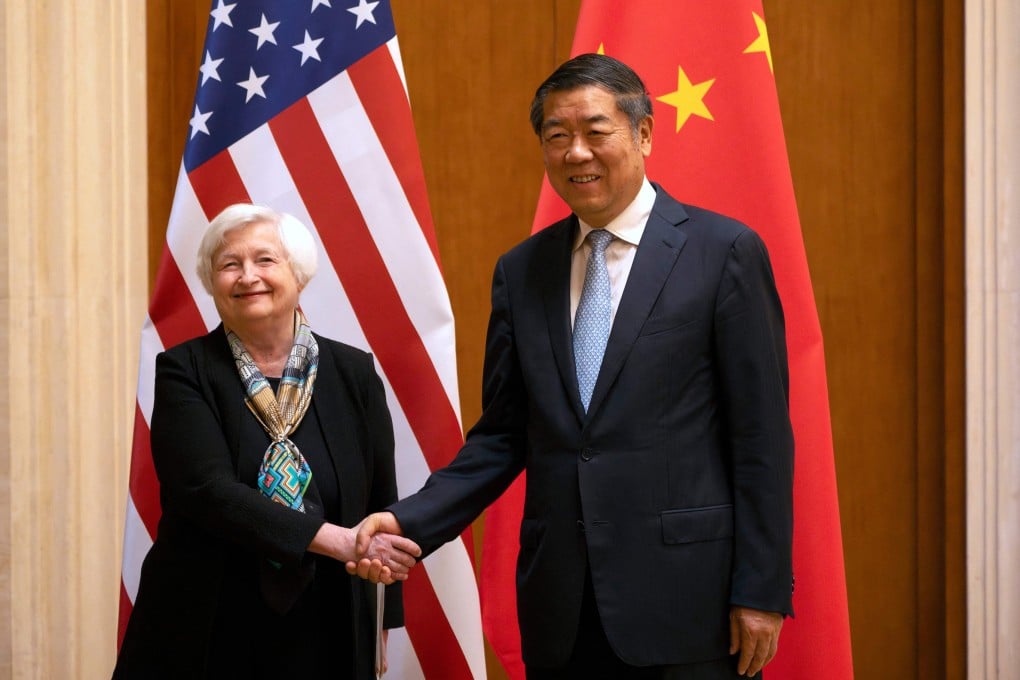Janet Yellen in China: what’s on the table as Washington’s ‘effective emissary’ begins her trip?
- US Treasury Secretary Janet Yellen will arrive in China on Thursday, and is set to visit the southern city of Guangzhou and capital city of Beijing
- Analysts say trade is ‘a key driver’ in the US-China relationship and can help maintain ‘fairly stable ties’ in a US election year

US Treasury Secretary Janet Yellen would be viewed in China as an “effective emissary” to manage trade tensions, but analysts are watching for any meaningful results from her week-long trip, which starts on Thursday.
The US Treasury confirmed on Tuesday that Yellen’s itinerary in the southern city of Guangzhou and capital city of Beijing would include meetings with economists, American businesses, Guangdong governor Wang Weizhong and Beijing mayor Yin Yong.
Premier Li Qiang, Vice-Premier He Lifeng, Minister of Finance Lan Fo’an, central bank governor Pan Gongsheng and Liu He, China’s former vice-premier who led previous trade negotiations with the US, would also meet with Yellen during trip, the US Treasury statement added.
“Secretary Yellen is widely respected and is seen as an effective emissary because she focuses on the issues and doesn’t let side problems get in the way of the discussion,” said Cameron Johnson, a Shanghai-based senior partner at consultancy firm Tidalwave Solutions.